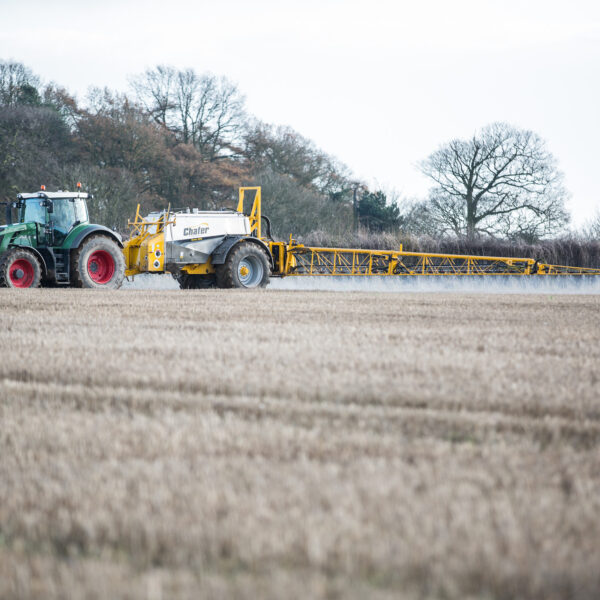
Glyphosate: "Better sorry than safe?"
Member states renew glyphosate license for a further five years
On 27 November, EU Member States, gathered together in an appeal committee chaired by the European Commission, finally agreed to renew glyphosate's license for a further five years after two years of dispute and hard negotiations. This license had been granted in 2002 for a period of 10 years. However, in 2012, in the absence of agreement between Member States, this renewal has continually been rejected. Today, L’Echo reports on a legal analysis putting forward the illegality of the license renewal procedure.
In order to endorse its renewal proposal, the Commission had to be supported by sixteen countries out of the twenty-eight, representing 65% of the European population. This vote takes place after the failure of 9 November when no majority was reached. As a reminder, eight States had voted against and five of them had abstained from voting.
It is finally the positive vote cast by Germany, who had abstained up to this time, which changed the outcome. Journalists have put forward several theories in order to explain this turn of events: the consequence of the failure of Angela Merkel's "Jamaican coalition", the new report legitimising glyphosate, the lack of harmony between the Minister of Agriculture, the Chancellor and the Minister of the Environment…etc.)
It should also be noted that, at the end of October, the European Parliament had adopted, by a large majority, a resolutionwhich requested the gradual banning of glyphosate. Furthermore, a "European Citizen Initiative" which requested its banning and clear European objectives for a reduction in the use of pesticides and a reform of their evaluation, had succeeded in amassing more than 1.3 million signatures. Lastly, a European survey, published at the beginning of November, announced that approximately 80% of those questioned wanted glyphosate to be banned.
If the subject is causing so much debate, it is because glyphosate's harmfulness is highly controversial. In March 2015, the International Agency for Research on Cancer (IARC), an agency affiliated with the World Health Organisation (WHO) confirmed that the substance is "probably carcinogenic"for humans due to "limited evidence of cancer in humans" but that evidence of cancer in laboratory animals is "sufficient".
Subsequently, other reports have disproved these findings: the European Food Safety Authority (EFSA) and the European Chemicals Agency (ECHA) in November 2015 and the French Agency for Food, Environmental and Occupational Health & Safety (ANSES) have ruled that there is no carcinogenic threat. Problem: the independence of the latter is called into question by some of the scientific community and by environmental NGOs, notably following the scandal of the "Monsanto Papers" (see on this subject French articles by Libération, Le Monde and Huffington Post).
The safety of glyphosate not having been established with certainty, should the precautionary principle not be applied?
This general EU principle of law intervenes when an objective scientific evaluation indicates that it is reasonable to fear that potentially dangerous effects for the environment or human, animal or plant health are incompatible with the high level of protection chosen for the Community. In such cases, even when scientific uncertainties persist as to their existence or scope, this principle imposes on institutions to take appropriate measures in order to prevent these risks by invoking the requirements related to the protection of these interests on economic interests (E.U.C.J., 11 juillet 2013, C-601/11, point 66.). The precautionary principle may therefore completely justify the adoption of measures holding in failure the principles of free circulation of goods and of the freedom of trade and industry and therefore, on this basis, also justify that we put an end to authorisation of the controversial substance. This means that when there is sufficient doubt concerning the potentially hazardous effects of a substance, the precautionary principle recommends rejecting it.
In fact, none of the studies carried out after that of the IARC, nor even the latest study, have managed to dispel the concerns expressed by public opinion, the world press and environmental NGOs, whether it be in terms of methodology or independence of the experts. And in this regard, the case law is clear:
"The scientific evaluation known as "a scientific process consisting of identifying a danger, of evaluating the exposure and of characterising the risk" falls within the competence of scientific experts tasked with providing comprehensive opinions based on the most recent results of international research and complying with the principles of excellence, independence and transparency."
Even though glyphosate's renewal has now been recorded, Member States will be able to issue or refuse national marketing authorisations in favour of products made from glyphosate, given that it is shared competence.
Belgium, like France and seven other European countries, voted against the renewal. The regions and the federal government have deplored this decision. In Belgium, the use of products falls within the jurisdiction of the regions. The latter have made use of this jurisdiction by banning the use of products containing glyphosate for professionals in Belgium unless specific authorisation has been granted (see the Walloon Order, the Flemish Orderand the Brussels Order).
However, marketing comes under federal jurisdiction. Following the licence renewal decision, an embryonic political will has been expressed in order to ban the marketing of products containing glyphosate in Belgium.
To be continued…
Camille de Bueger and Ikram Eabdellatin.
(More sources to be found in the French version of the article)
Associated areas of specialisation: Environment